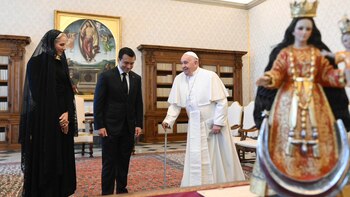
Rio de Janeiro is the choice of the IOC to host the 2016 Olympics.
Rio de Janeiro won on the third round of voting at the IOC Session in Copenhagen, after Chicago was eliminated in the first round, Tokyo in the second round and Madrid in the final round.
Rio beat Madrid by a wide margin, 66 votes to 32 votes in the final round.
In the second round, Rio polled 46 votes to 29 for Madrid, 20 for Tokyo, eliminating the Japanese bid.
In the initial round of voting Madrid was the leader with 28 votes, 26 for Rio, 22 for Tokyo and 18 for Chicago.
The bid from Rio de Janeiro was the second in a row for the city of 6.2 million, eliminated in the first phase of the selection process for 2012.
In the final presentation to the IOC, Brazilian President Luiz Inacio Lula da Silva urged the IOC to consider awarding the Olympics for the first time to South America.
One big difference between the first campaign and the successful bid for 2016 might be the successful staging of the 2007 Pan American Games. Those games, with more than 5,000 athletes from North and South America, were cited frequently by Rio bid leaders as proof of the city’s readiness to hold the Olympics.
Rio de Janeiro proposes to stage the Games in four clusters around the city, with most of the venues and the Olympic Village in the western suburbs of Barra de Tijuca. Some venues were built for the Pan American Games.
The biggest project will be the Olympic Park, a development that will include the village and sports venues that are supposed to remain as a training center for athletes from South America.
Opening and closing ceremonies will be held in the famous Maracana Stadium, currently under renovation ahead of the 2014 World Cup.
The World Cup was cited as one of the concerns for the Rio de Janeiro bid by an IOC Evaluation Commission that reviewed the four bid cities earlier this year. The IOC experts were worried that the FIFA event will diminish the marketing potential for the 2016 Olympics.
At the same time, preparations for the World Cup are expected to accelerate improvements in Brazil needed for the Olympics.
The budget for infrastructure for the Rio Olympics is $11 billion, the biggest among the four 2016 cities.
The election by the IOC caps one of the longest campaigns ever for the Summer Games, a process that began more than three years ago for some of the cities.
According to an IOC survey earlier this year, public support for the Rio De Janeiro Olympics is near 85%.
Written by Ed HulaFor general comments or questions, click here
Últimas Noticias
Sinner-Alcaraz, the duel that came to succeed the three phenomenons
Beyond the final result, Roland Garros left the feeling that the Italian and the Spaniard will shape the great duel that came to help us through the duel for the end of the Federer-Nadal-Djokovic era.
Table tennis: Brazil’s Bruna Costa Alexandre will be Olympic and Paralympic in Paris 2024
She is the third in her sport and the seventh athlete to achieve it in the same edition; in Santiago 2023 she was the first athlete with disabilities to compete at the Pan American level and won a medal.

Rugby 7s: the best player of 2023 would only play the medal match in Paris
Argentinian Rodrigo Isgró received a five-game suspension for an indiscipline in the circuit’s decisive clash that would exclude him until the final or the bronze match; the Federation will seek to make the appeal successful.

Rhonex Kipruto, owner of the world record for the 10000 meters on the road, was suspended for six years
The Kenyan received the maximum sanction for irregularities in his biological passport and the Court considered that he was part of a system of “deliberate and sophisticated doping” to improve his performance. He will lose his record and the bronze medal at the Doha World Cup.

Katie Ledecky spoke about doping Chinese swimmers: “It’s difficult to go to Paris knowing that we’re going to compete with some of these athletes”
The American, a seven-time Olympic champion, referred to the case of the 23 positive controls before the Tokyo Games that were announced a few weeks ago and shook the swimming world. “I think our faith in some of the systems is at an all-time low,” he said.




